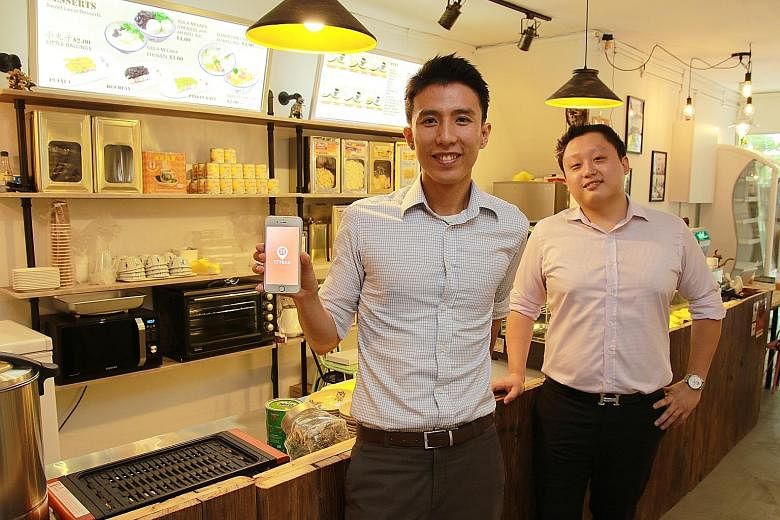Even as Singapore's population grows, food waste has recently been on the decline, thanks to the collective efforts of government agencies and charities in tackling the problem on multiple fronts.
And the heartening trend looks as if it will continue, as scientists and mobile app developers pitch in to help people reduce and recycle.
A Straits Times analysis of food statistics from the National Environment Agency (NEA) and population figures from the Department of Statistics shows that food waste generated per person rose from about 117kg in 2008 to about 147kg in 2013, after which it began to fall slowly. In 2015, about 142kg of food waste was generated per person.
The rise of local charities that help redistribute surplus food may have helped.
One of them is Food Bank Singapore, which redistributes packaged food from its warehouse at Tanjong Pagar Distripark.

It also delivers leftover cooked food from hotels and eateries to welfare organisations.
Ms Nichol Ng, 38, who co-founded the charity in 2012, said its outreach efforts have made people more aware of an avenue to donate their surplus food.
"In 2012, we collected only two tonnes of food the whole year, but last year, we collected 60 tonnes a month on average," she said.
Government efforts help too. The NEA launched a poster and video campaign last year against food waste after a poll found many people bought too much food and were swayed by promotional prices.
More groups are joining the fight against food waste.
Last month, for example, saw the debut of the new mobile app 11th Hour, which provides customers with a snapshot of the nearest and best deals from F&B outlets clearing surplus food.
About 140 establishments have signed up, and co-founder Tan Jun Yuan is working to get more restaurants and even hawkers on board.
Mr Tan, 30, came up with the idea of the app while selling bak kut teh (pork rib broth) at a coffee shop in Toa Payoh, where he witnessed buckets of food being tossed out at the end of each day.
"I knew just simply telling people to cut down on wastage for the sake of the environment was not going to work," he said. "There must be something in it for them as well."
As for food that gets discarded despite such efforts, NEA and national water agency PUB are jointly developing an Integrated Waste Management Facility that will convert food and other waste into biogas. The facility is expected to be ready some time in the next decade.
And scientists at the National University of Singapore are hoping to take one of their recent breakthroughs beyond the laboratory - an engineered yeast that can convert fat in food waste into butanol for use as fuel or for making cosmetics and textiles.
Singapore produced 785,500 tonnes of food waste last year. This is nearly equivalent to two bowls of food per person per day.
The recycling rate has hovered at about 13 per cent.
There is still a long way to go in reducing waste, but prospects are looking bright.

